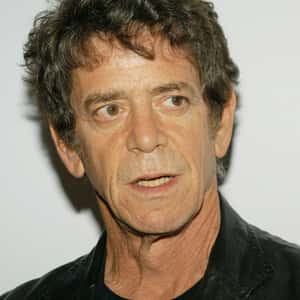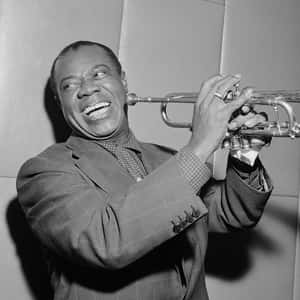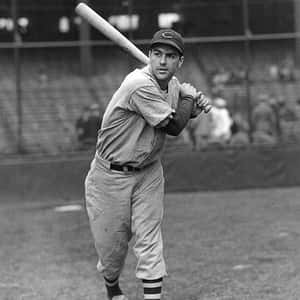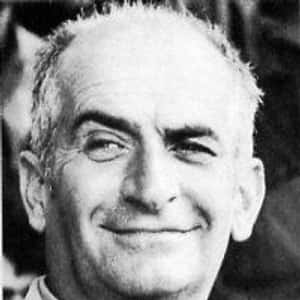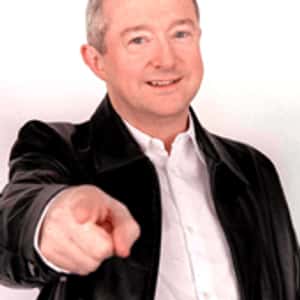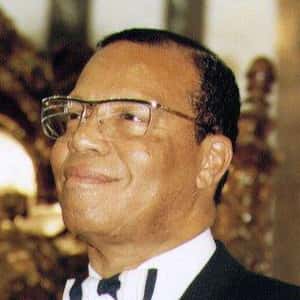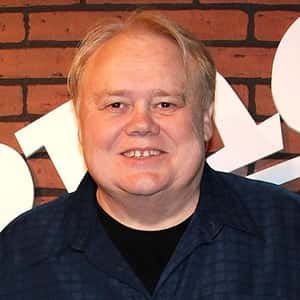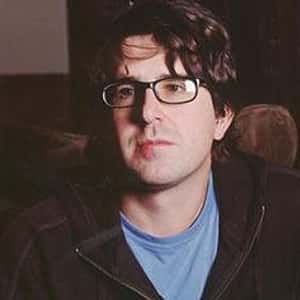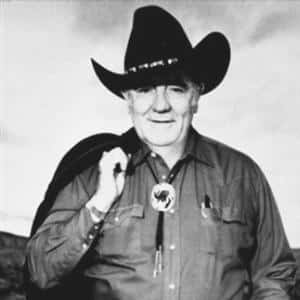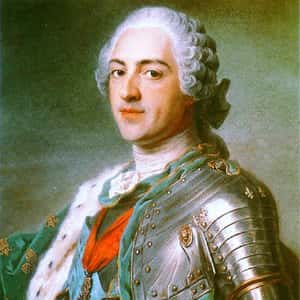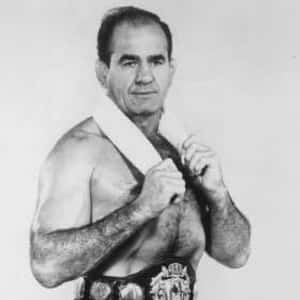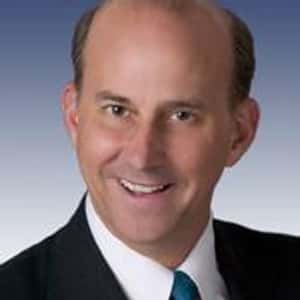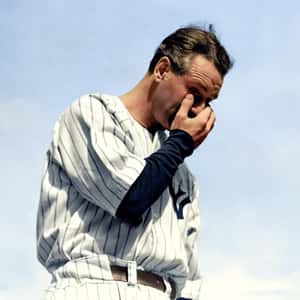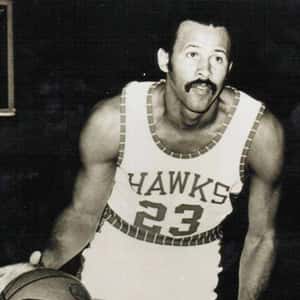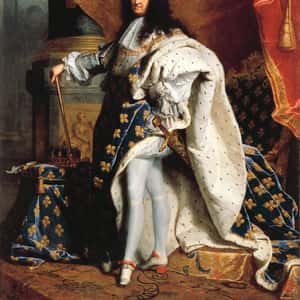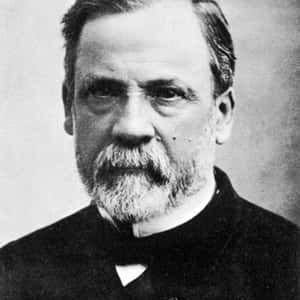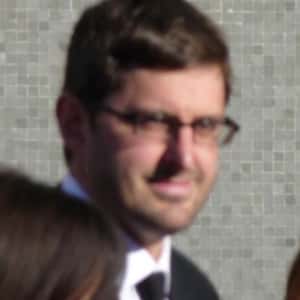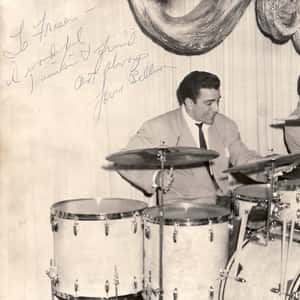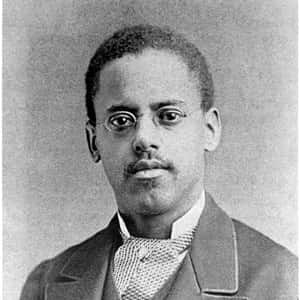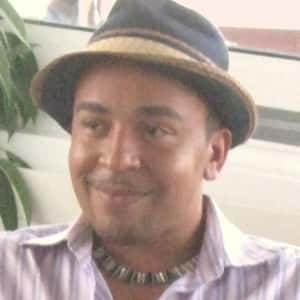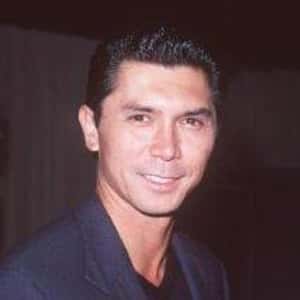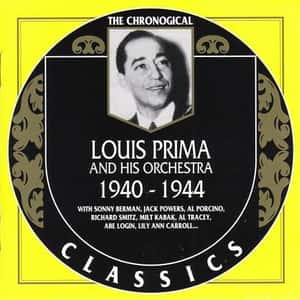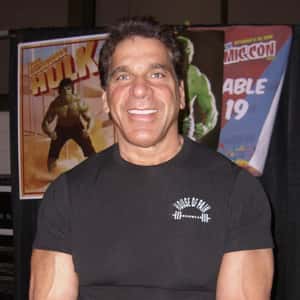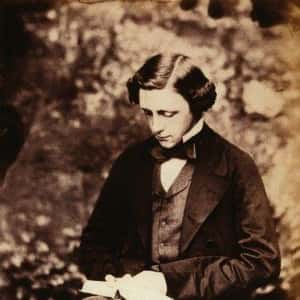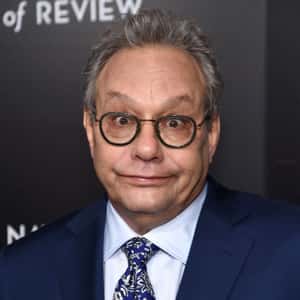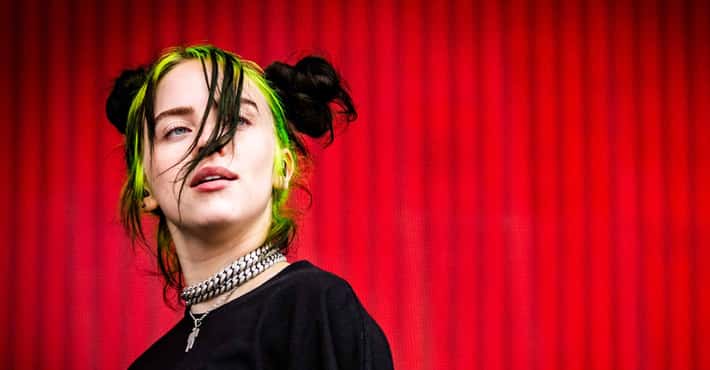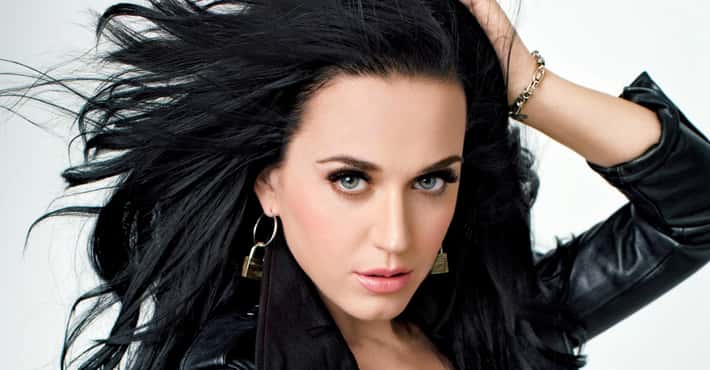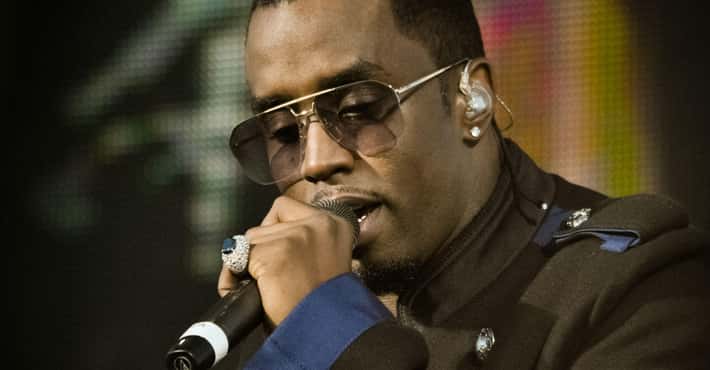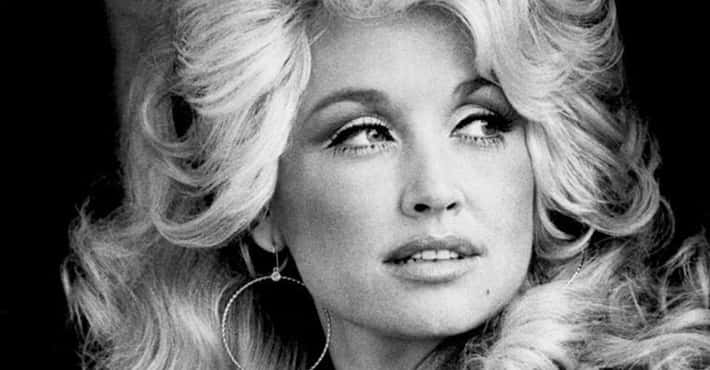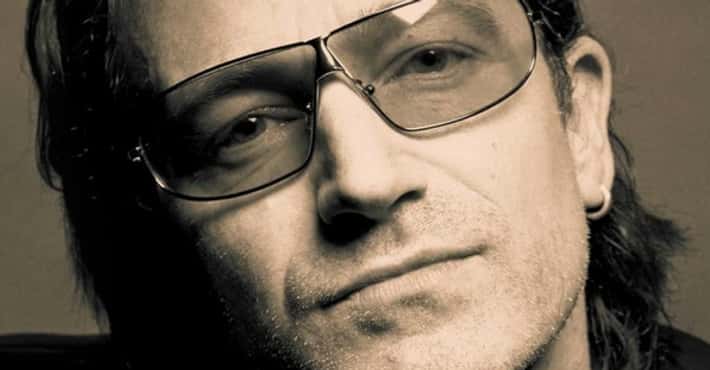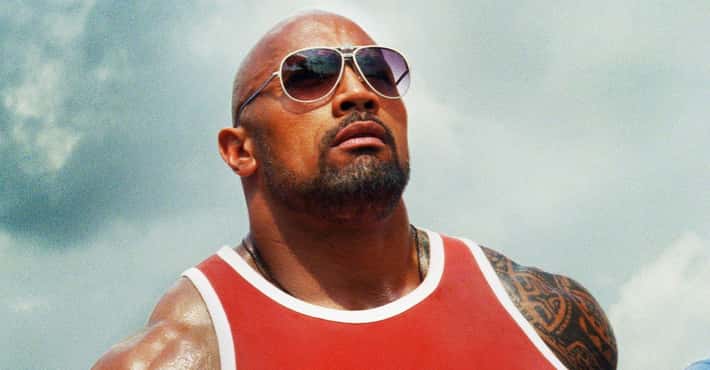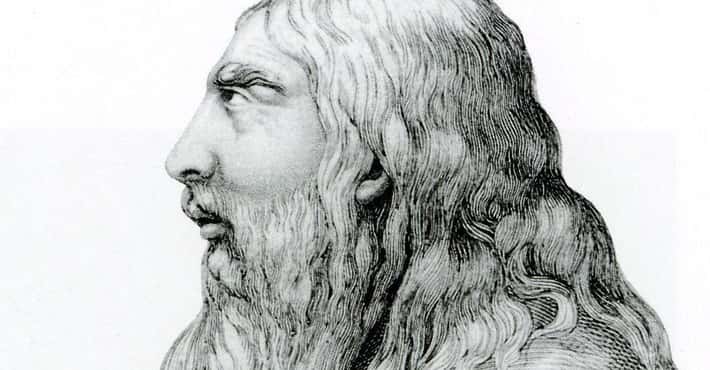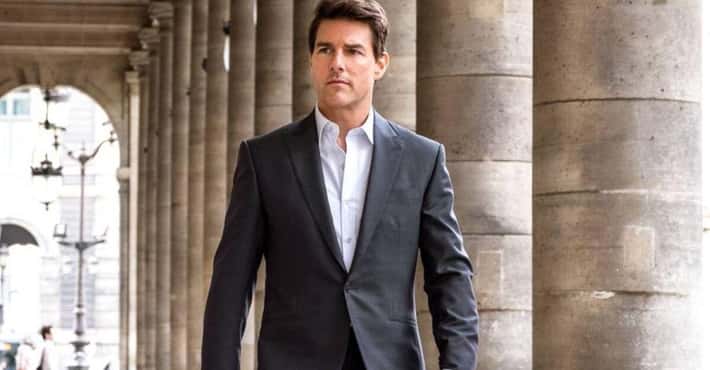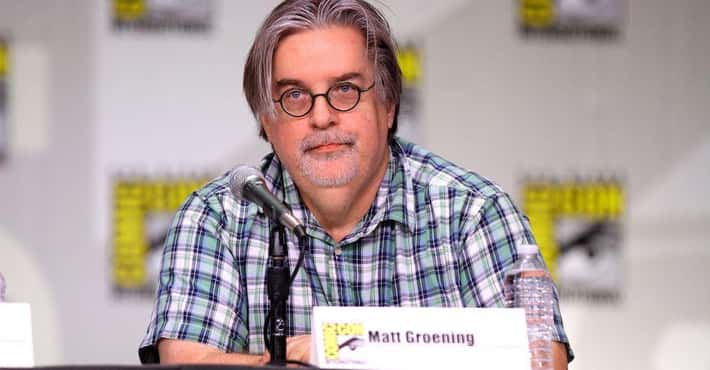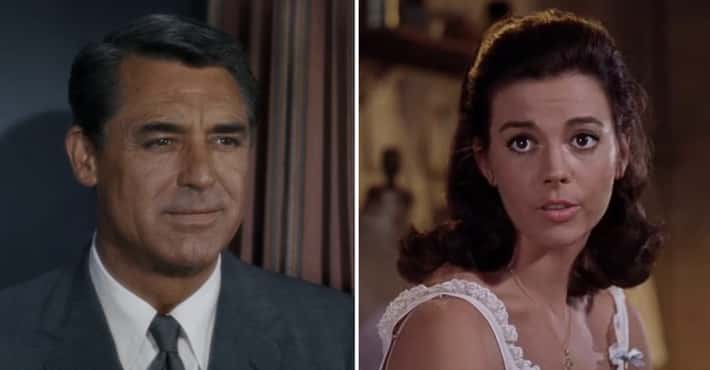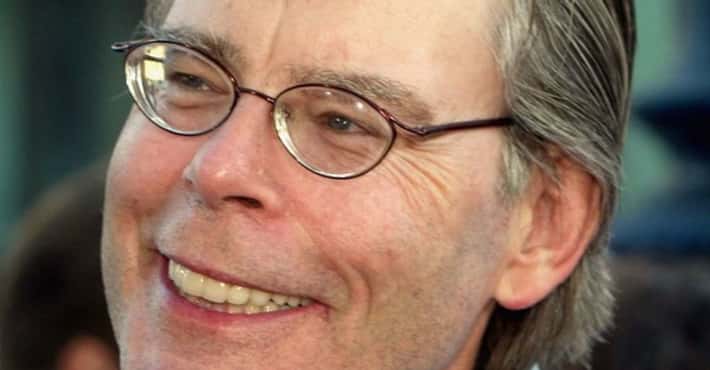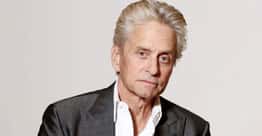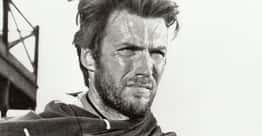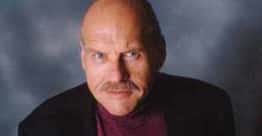Who Is The Most Famous Louis Or Lou In The World?
Ranked By
373 votes
113 voters
Voting Rules
Vote up all of the Lous and Louises you've heard of.
- 12/24/1991Louis William Tomlinson (24 December 1991) is an English singer, songwriter and television personality. He rose to fame as a member of the boy band One Direction after beginning his career as an actor, appearing as an extra in ITV drama film If I Had You and the BBC drama Waterloo Road. In 2010, he auditioned as a solo contestant on the British music competition series The X Factor. He was eliminated as a solo performer before he was put into a group with four other contestants, forming One Direction. The band has released five albums, embarked on four world tours, and won nearly 200 awards.More Louis Tomlinson
- #31 of 96 onThe Best Current Pop Groups/Singers
- #8 of 56 onThe Hottest Male Singers
- #22 of 25 onTimes Actors Gave Unexpectedly Honest Answers To Interview Questions
- 03/02/1942Lou Reed, born as Lewis Allan Reed in 1942, was an iconic figure in the world of rock music. Raised in Freeport, Long Island, he was drawn to rhythm and blues and jazz at a young age. Reed started his musical journey in high school, playing in several bands before attending Syracuse University, where he studied journalism, film directing, and creative writing. His college years were instrumental in shaping his future music career, with poet Delmore Schwartz having a profound influence on his songwriting and literary sensibilities. Reed's breakthrough came in the mid-1960s when he co-founded The Velvet Underground, a band that, while not initially commercially successful, garnered significant critical acclaim and is now considered one of the most influential bands in rock history. Reed's candid narratives about drugs and urban life, combined with the band's experimental sound, laid the groundwork for punk and alternative rock. Following his departure from The Velvet Underground in 1970, Reed embarked on a solo career that spanned multiple decades and cemented his status as a rock legend. Despite facing personal struggles, including battles with drug addiction, Reed continued to produce music that resonated deeply with audiences. Albums like Transformer and Berlin stand as testament to his immense talent and enduring impact. His lyrics, often dark and gritty, painted vivid portraits of life's underbelly, earning him the moniker "the poet laureate of punk." Reed passed away in 2013, leaving behind a rich legacy that continues to inspire musicians and fans alike. His ability to blend raw emotion with innovative musical techniques has solidified his place in the record books.More Lou Reed
- Dig Deeper...Wild Stories About The Insane Life Of Music Pioneer Lou Reed
- #209 of 251 onThe 250+ Best Singers Of The Last 30 Years, Ranked
- #179 of 864 onThe 250+ Greatest Rock Bands Of All Time, Ranked
- 08/04/1901Louis Armstrong, an iconic figure in the world of jazz, was born on August 4, 1901, in New Orleans, Louisiana, a city known as the birthplace of jazz. Raised in a challenging environment marked by poverty, Armstrong had a tough upbringing that was far from ideal. However, his humble beginnings did not deter him from pursuing his passion for music. His journey into music started when he was just a child, playing a tin horn on the streets of New Orleans. A local Jewish family, the Karnofskys, who recognized his musical talent and gave him a real trumpet, significantly influenced his early life. Armstrong's career took a significant turn when he joined the "King Oliver Creole Jazz Band" in 1922. His unique style of play, characterized by creative improvisations, rhythmic innovation, and a distinctive gravelly voice, quickly made him a standout performer. He moved to Chicago in the mid-1920s, where he made some of his most influential recordings with his bands the Hot Five and the Hot Seven. These recordings showcased Armstrong's ability to transform jazz from a group-oriented folk music into an art form that emphasized solo performance. Despite facing racial discrimination throughout his life, Armstrong's influence transcended the boundaries of race and culture. He toured extensively in the 1930s and 1940s, earning the nickname "Ambassador Satch" and becoming one of the first African American entertainers to achieve widespread popularity among both white and black audiences. With hits like "What a Wonderful World" and "Hello, Dolly!", Armstrong left an indelible mark on the music industry. He passed away on July 6, 1971, but his legacy continues to inspire generations of musicians across the globe.More Louis Armstrong
- Dig Deeper...320 Famous Leo Celebrities
- #36 of 557 onThe 250+ Best Singers Of All Time, Ranked
- #162 of 200 onThe Coolest Actors Ever
- 07/17/1917Louis Boudreau (nicknamed "Old Shufflefoot," "Handsome Lou" or "The Good Kid"; July 17, 1917 – August 10, 2001) was an American professional baseball player and manager. He played in Major League Baseball (MLB) for 15 seasons, primarily as a shortstop on the Cleveland Indians, and managed four teams for 15 seasons including 10 seasons as a player-manager. He was also a radio announcer for the Chicago Cubs and in college was a dual sport athlete in both baseball and earning All-American honors in basketball for the University of Illinois. Boudreau was an All-Star for seven seasons. In 1948, Boudreau won the American League Most Valuable Player Award and managed the Cleveland Indians to the World Series title. He won the 1944 American League (AL) batting title (.327), and led the league in doubles in 1941, 1944, and 1947. He led AL shortstops in fielding eight times. Boudreau still holds the MLB record for hitting the most consecutive doubles in a game (four), set on July 14, 1946. In 1970, Boudreau was elected to the National Baseball Hall of Fame as a player.
- 07/31/1914Louis Germain David de Funès de Galarza (French pronunciation: [lwi də fy.nɛs]; 31 July 1914 – 27 January 1983) was a French actor and comedian. According to several polls conducted since 1968, he is France's favourite actor – having played over 130 roles in film and over 100 on stage. His acting style is remembered for its high-energy performance and his wide range of facial expressions and tics. A considerable part of his best-known acting was directed by Jean Girault. He often still is a household name in many countries such as Italy, Greece, Hungary, the Czech Republic, Slovakia, Belgium, Poland, Bulgaria, Germany, Spain, Turkey, Albania, Romania, Croatia, former countries of the Soviet Union, as well as Iran. Yet he remains almost unknown in the English-speaking world. He was exposed to a wider audience only once in the United States, in 1974, with the release of The Mad Adventures of Rabbi Jacob, which was nominated for a Golden Globe Award.
- 08/05/1952Michael Louis Vincent Walsh (born 5 August 1952) is an Irish entertainment manager and former judge on British television talent show The X Factor. Originally from Kiltimagh, County Mayo, Walsh moved to Dublin to get a start in the music industry. He managed Johnny Logan, Boyzone and Westlife, three of Ireland's most successful pop artists in the 1990s and 2000s. In later life, Walsh began an alternative career as a television talent pundit and personality. He was a judge on The X Factor from the show's inception in 2004 until 2017 (with the exception of 2015). He has mentored the "Groups" category six times and the "Overs" category three times. He was the winning judge of the show's second series, mentoring Shayne Ward. He has also appeared on You're a Star, Popstars and Popstars: The Rivals. Walsh has also guest judged on Britain's Got Talent a number of times and on The X Factor USA in 2012. He is also the creator of, and currently a judge on, Ireland's Got Talent, which first aired on 12 February 2018.
- 7
Lou Albano
07/29/1933Louis Vincent Albano (29 July 1933 – 14 October 2009) was an Italian-American professional wrestler, manager and actor. He was active as a professional wrestler from 1953 until 1969 before becoming a manager until 1995. Over the course of his 42-year career Albano guided 15 different tag teams and three singles competitors to championship gold. Albano was one of the "Triumvirate of Terror," a threesome of nefarious WWF managers which included The Grand Wizard of Wrestling and Freddie Blassie. The trio was a fixture in the company for a decade until The Grand Wizard's death in 1983. A unique showman, with an elongated beard, rubber band facial piercings, and loud outfits, Albano was the forefather of the 1980s Rock 'n' Wrestling Connection. Collaborating with Cyndi Lauper, Albano helped usher in wrestling's crossover success with a mainstream audience.More Lou Albano- Dig Deeper...Famous People Who Died in New York
- #99 of 337 onThe Greatest Pro Wrestlers of All Time
- #41 of 80 onThe Best WWE Superstars of the '80s
- 05/11/1933Louis Farrakhan Sr. (; born Louis Eugene Walcott; May 11, 1933), formerly known as Louis X, is an American minister who is the leader of the religious group Nation of Islam (NOI), which the Southern Poverty Law Center describes as a black nationalist group. Previously, he served as the minister of mosques in Boston and Harlem and had been appointed National Representative of the Nation of Islam by former NOI leader Elijah Muhammad. After Warith Deen Muhammad reorganized the original NOI into the orthodox Sunni Islamic group American Society of Muslims, Farrakhan started rebuilding the NOI as "Final Call". In 1981 he officially adopted the name "Nation of Islam", reviving the group and establishing its headquarters at Mosque Maryam. Farrakhan has been described as antisemitic by the Southern Poverty Law Center, the Anti-Defamation League and others. The NOI promotes an anti-white theology, also according to the SPLC. Some of his remarks have also been considered homophobic. Farrakhan has disputed these characterizations.In October 1995, he organized and led the Million Man March in Washington, D.C. Due to health issues, he reduced his responsibilities with the NOI in 2007. However, Farrakhan has continued to deliver sermons and speak at NOI events. In 2015, he led the 20th Anniversary of the Million Man March: Justice or Else.
- 9
Louie Anderson
03/24/1953Louis Perry Anderson (March 24, 1953 – January 21, 2022) was an American stand-up comedian, actor, author, and game show host.[2] Anderson created the cartoon series Life with Louie and wrote four books, including Hey Mom: Stories for My Mother, But You Can Read Them Too, which was published in 2018. He was the initial host of the third revival of the game show Family Feud from 1999 to 2002. For his performance on the FX comedy television series Baskets, Anderson received three consecutive Primetime Emmy Award for Outstanding Supporting Actor in a Comedy Series nominations and won once in 2016. Anderson performed a stand-up show called Louie: Larger Than Life in Las Vegas, Nevada, from 2003 through 2012. The show originated at the Union Plaza hotel downtown, before moving to Excalibur, South Point, and Palace Station hotels.More Louie Anderson- #81 of 262 onThe Funniest Stand-Up Comedians Of All Time
- #22 of 36 onWhich Comedian's Death Hit You Hardest?
- #53 of 73 onThe Game Show Hosts With The Most
- 07/17/1966Louis Knox Barlow (born July 17, 1966) is an American alternative rock musician and songwriter. A founding member of the groups Dinosaur Jr., Sebadoh and The Folk Implosion, Barlow is credited with helping to pioneer the lo-fi style of rock music in the late 1980s and early 1990s. His first band, in Amherst, Massachusetts, was Deep Wound. Barlow was born in Dayton, Ohio and raised in Jackson, Michigan and Westfield, Massachusetts. Barlow has released three solo albums, the latest of which, Brace The Wave, appeared on September 4, 2015.
- 03/22/1908Louis Dearborn L'Amour (; March 22, 1908 – June 10, 1988) was an American novelist and short-story writer. His books consisted primarily of Western novels (though he called his work "frontier stories"); however, he also wrote historical fiction (The Walking Drum), science fiction (Haunted Mesa), non-fiction (Frontier), as well as poetry and short-story collections. Many of his stories were made into films. L'Amour's books remain popular and most have gone through multiple printings. At the time of his death almost all of his 105 existing works (89 novels, 14 short-story collections, and two full-length works of nonfiction) were still in print, and he was "one of the world's most popular writers".
- 08/23/1754Louis XVI (French pronunciation: [lwi sɛːz]; 23 August 1754 – 21 January 1793), born Louis-Auguste, was the last King of France before the fall of the monarchy during the French Revolution. He was referred to as citizen Louis Capet during the four months before he was guillotined. In 1765, at the death of his father, Louis, son and heir apparent of Louis XV, Louis-Auguste became the new Dauphin of France. Upon his grandfather's death on 10 May 1774, he assumed the title "King of France and Navarre", which he used until 4 September 1791, when he received the title of "King of the French" until the monarchy was abolished on 21 September 1792. The first part of his reign was marked by attempts to reform the French government in accordance with Enlightenment ideas. These included efforts to abolish serfdom, remove the taille (land tax) and the corvée (labour tax), and increase tolerance toward non-Catholics as well as abolish the death penalty for deserters. The French nobility reacted to the proposed reforms with hostility, and successfully opposed their implementation. Louis implemented deregulation of the grain market, advocated by his economic liberal minister Turgot, but it resulted in an increase in bread prices. In periods of bad harvests, it would lead to food scarcity which would prompt the masses to revolt. From 1776, Louis XVI actively supported the North American colonists, who were seeking their independence from Great Britain, which was realised in the 1783 Treaty of Paris. The ensuing debt and financial crisis contributed to the unpopularity of the Ancien Régime. This led to the convening of the Estates-General of 1789. Discontent among the members of France's middle and lower classes resulted in strengthened opposition to the French aristocracy and to the absolute monarchy, of which Louis and his wife, Queen Marie Antoinette, were viewed as representatives. Increasing tensions and violence were marked by events such as the storming of the Bastille, during which riots in Paris forced Louis to definitively recognize the legislative authority of the National Assembly. Louis XVI was initiated into masonic lodge Trois-Frères à l'Orient de la Cour.Louis's indecisiveness and conservatism led some elements of the people of France to view him as a symbol of the perceived tyranny of the Ancien Régime, and his popularity deteriorated progressively. His disastrous flight to Varennes in June 1791, four months before the constitutional monarchy was declared, seemed to justify the rumors that the king tied his hopes of political salvation to the prospects of foreign intervention. The credibility of the king was deeply undermined, and the abolition of the monarchy and the establishment of a republic became an ever-increasing possibility. In a context of civil and international war, Louis XVI was suspended and arrested at the time of the Insurrection of 10 August 1792; one month later, the absolute monarchy was abolished; the First French Republic was proclaimed on 21 September 1792. He was tried by the National Convention (self-instituted as a tribunal for the occasion), found guilty of high treason, and executed by guillotine on 21 January 1793, as a desacralized French citizen under the name of "Citizen Louis Capet," in reference to Hugh Capet, the founder of the Capetian dynasty – which the revolutionaries interpreted as Louis' surname. Louis XVI was the only King of France ever to be executed, and his death brought an end to more than a thousand years of continuous French monarchy. Both of his sons died in childhood, before the Bourbon Restoration; his only child to reach adulthood, Marie Therese, was given over to the Austrians in exchange for French prisoners of war, eventually dying childless in 1851.
- 04/24/1916Aloysius Martin "Lou" Thesz (April 24, 1916 – April 28, 2002) was an American professional wrestler. A fifteen-time world champion, he held the NWA World Heavyweight Championship three times for a combined total of 10 years, three months and nine days (3,749 days) – longer than anyone else in history. Thesz is widely regarded as one of the greatest wrestlers of all time. Among his many accomplishments in the sport, he is credited with inventing a number of professional wrestling moves and holds such as the belly-to-back waistlock suplex (later known as the German suplex due to its association with Karl Gotch), the Lou Thesz press, stepover toehold facelock (STF), and the original powerbomb. In addition to being a member of its inaugural class, he helped establish the George Tragos/Lou Thesz Professional Wrestling Hall of Fame and is a charter member of several other halls of fame, including: WCW, Wrestling Observer Newsletter, Professional Wrestling and WWE's Legacy Wing.
- 08/18/1953Louis Buller Gohmert Jr. (; born August 18, 1953) is an American attorney and former judge who currently serves as the U.S. Representative from Texas' 1st congressional district, in office since 2005, a member of the Republican Party, Gohmert is part of the Tea Party movement. In January 2015, he unsuccessfully challenged John Boehner for the position of Speaker of the House of Representatives.
- 01/07/1985Sir Lewis Carl Davidson Hamilton (born 7 January 1985) is a British racing driver. He currently competes in Formula One for Mercedes, having previously driven for McLaren from 2007 to 2012. In Formula One, Hamilton has won a joint-record seven World Drivers' Championship titles (tied with Michael Schumacher), and holds the records for the most wins (103), pole positions (103), and podium finishes (182), among others.More Lewis Hamilton
- #5 of 76 onThe Best Formula 1 Drivers Of All Time
- #8 of 81 onThe Hottest Professional Athletes (Male)
- #762 of 1,269 onThe Best Athletes Of All Time
- 06/19/1903Lou Gehrig, an American baseball legend, had a career that is one of the most remarkable in the history of Major League Baseball. Born on June 19, 1903, in New York City, Gehrig's passion for baseball was ignited during his childhood and he later honed his skills at Columbia University. He made his debut for the New York Yankees in 1923, setting the stage for a career that would span over 15 years. Gehrig is best known for his impressive streak of playing 2,130 consecutive games, a record which stood unbroken until 1995. This achievement earned him the nickname "The Iron Horse". His prowess as a first baseman was unparalleled, earning him seven All-Star selections and six World Series titles with the Yankees. Gehrig also claimed two Most Valuable Player awards and was the Triple Crown winner in 1934, leading the league in home runs, runs batted in, and batting average. However, Gehrig's illustrious career was cut short by a rare neurological disorder, now commonly known as Lou Gehrig's disease (amyotrophic lateral sclerosis). Despite his illness, Gehrig displayed immense courage and dignity. On July 4, 1939, he delivered a farewell speech at Yankee Stadium, famously describing himself as "the luckiest man on the face of the earth". Lou Gehrig passed away on June 2, 1941, but his legacy continues to inspire generations of baseball fans and players alike.More Lou Gehrig
- Dig Deeper...The 365+ Most Famous Geminis
- And Deeper...Longest Hitting Streaks in Baseball
- #6 of 388 onThe Greatest Baseball Players Of All Time
- 07/11/1944Louis Clyde Hudson ("Sweet Lou") (July 11, 1944 – April 11, 2014) was an American National Basketball Association (NBA) player, who was an All-American at the University of Minnesota and a six-time NBA All-Star, scoring 17,940 total points in 13 NBA seasons (1966–1979).More Lou Hudson
- #51 of 109 onThe 100+ Best NBA Small Forwards of All Time
- #75 of 127 onThe 100+ Best NBA Shooting Guards Ever
- #80 of 135 onThe Greatest Lakers Of All Time
- 09/05/1638Louis XIV (Louis Dieudonné; 5 September 1638 – 1 September 1715), known as Louis the Great (Louis le Grand) or the Sun King (le Roi Soleil), was King of France from 14 May 1643 until his death in 1715. His reign of 72 years and 110 days is the longest recorded of any monarch of a sovereign country in European history. In the age of absolutism in Europe, Louis XIV's France was a leader in the growing centralisation of power.Louis began his personal rule of France in 1661, after the death of his chief minister, the Italian Cardinal Mazarin. An adherent of the concept of the divine right of kings, Louis continued his predecessors' work of creating a centralised state governed from the capital. He sought to eliminate the remnants of feudalism persisting in parts of France and, by compelling many members of the nobility to inhabit his lavish Palace of Versailles, succeeded in pacifying the aristocracy, many members of which had participated in the Fronde rebellion during Louis' minority. By these means he became one of the most powerful French monarchs and consolidated a system of absolute monarchical rule in France that endured until the French Revolution. Louis encouraged and benefited from the work of prominent political, military, and cultural figures such as Mazarin, Colbert, Louvois, the Grand Condé, Turenne, Vauban, Boulle, Molière, Racine, Boileau, La Fontaine, Lully, Charpentier, Marais, Le Brun, Rigaud, Bossuet, Le Vau, Mansart, Charles, Claude Perrault, and Le Nôtre. Under his rule, the Edict of Nantes, which granted rights to Huguenots, was abolished. The revocation effectively forced Huguenots to emigrate or convert in a wave of dragonnades, which managed to virtually destroy the French Protestant minority. During Louis' long reign, France was the leading European power, and it fought three major wars: the Franco-Dutch War, the War of the League of Augsburg, and the War of the Spanish Succession. There were also two lesser conflicts: the War of Devolution and the War of the Reunions. Warfare defined the foreign policy of Louis XIV, and his personality shaped his approach. Impelled "by a mix of commerce, revenge, and pique", Louis sensed that warfare was the ideal way to enhance his glory. In peacetime he concentrated on preparing for the next war. He taught his diplomats that their job was to create tactical and strategic advantages for the French military.More Louis XIV of France
- Dig Deeper...The Biggest Scandals From The Court Of Louis XIV
- And Deeper...16 Famous Bodies From History Found In Inconspicuous Places
- #34 of 309 onThe Most Important Leaders In World History
- 12/27/1822Louis Pasteur (, French: [lwi pastœʁ]; December 27, 1822 – September 28, 1895) was a French biologist, microbiologist and chemist renowned for his discoveries of the principles of vaccination, microbial fermentation and pasteurization. He is remembered for his remarkable breakthroughs in the causes and prevention of diseases, and his discoveries have saved many lives ever since. He reduced mortality from puerperal fever, and created the first vaccines for rabies and anthrax. His medical discoveries provided direct support for the germ theory of disease and its application in clinical medicine. He is best known to the general public for his invention of the technique of treating milk and wine to stop bacterial contamination, a process now called pasteurization. He is regarded as one of the three main founders of bacteriology, together with Ferdinand Cohn and Robert Koch, and is popularly known as the "father of microbiology".Pasteur was responsible for disproving the doctrine of spontaneous generation. He performed experiments that showed that without contamination, microorganisms could not develop. Under the auspices of the French Academy of Sciences, he demonstrated that in sterilized and sealed flasks nothing ever developed, and in sterilized but open flasks microorganisms could grow. Although Pasteur was not the first to propose the germ theory, his experiments indicated its correctness and convinced most of Europe that it was true. Today, he is often regarded as one of the fathers of germ theory. Pasteur made significant discoveries in chemistry, most notably on the molecular basis for the asymmetry of certain crystals and racemization. Early in his career, his investigation of tartaric acid resulted in the first resolution of what is now called optical isomers. His work led the way to the current understanding of a fundamental principle in the structure of organic compounds. He was the director of the Pasteur Institute, established in 1887, until his death, and his body was interred in a vault beneath the institute. Although Pasteur made groundbreaking experiments, his reputation became associated with various controversies. Historical reassessment of his notebook revealed that he practiced deception to overcome his rivals.
- 05/20/1970Louis Sebastian Theroux (; born 20 May 1970) is a British-American documentary filmmaker, journalist and broadcaster.Theroux is best known for his documentary series, including Louis Theroux's Weird Weekends, When Louis Met..., and his BBC Two specials. His career started in journalism and it bears the influences of notable writers in his family, such as his father Paul and his brother Marcel. The BBC has produced all of his documentaries and television series. He has received two British Academy Television Awards and a Royal Television Society Television Award for his work.
- 07/06/1924Luigi Paulino Alfredo Francesco Antonio Balassoni (July 6, 1924 – February 14, 2009), known by the stage name Louie Bellson (his own preferred spelling, although he is often seen in sources as Louis Bellson), was an American jazz drummer. He was a composer, arranger, bandleader, and jazz educator, and is credited with pioneering the use of two bass drums.Bellson was an internationally acclaimed artist who performed in most of the major capitals around the world. Bellson and his wife, actress and singer Pearl Bailey (married from 1952 until Bailey's death in 1990), had the second highest number of appearances at the White House (only Bob Hope had more). Bellson was a vice president at Remo, a drum company. He was inducted into the Modern Drummer Hall of Fame in 1985.
- 09/04/1848Lewis Howard Latimer (September 4, 1848 – December 11, 1928) was an American inventor and patent draftsman for the lightbulb and telephone.
- 04/13/1975David Lubega (born 13 April 1975), better known by his stage name Lou Bega, is a German recording artist. His 1999 song "Mambo No. 5", a remake of Pérez Prado's 1949 instrumental piece, reached Number 1 in many European countries and was nominated for a Grammy Award. Bega added his own words to the song and sampled the original version extensively. Bega's musical signature consists of combining musical elements of the 1940s and 1950s with modern beats and grooves.More Lou Bega
- #57 of 63 onThe Best Short Male Singers
- #24 of 25 onThe Best One Hit Wonder Bands & Artists
- #451 of 477 onCelebrities You Didn't Know Use Stage Names
- 02/17/1962Lou Diamond Phillips, born on February 17, 1962, is an American actor and director with an extensive career in the film, television, and theater industries. Born in Subic Bay Naval Station in the Philippines, Phillips grew up in Texas and started his acting journey at the University of Texas at Arlington. His big break came in 1987 when he starred as Ritchie Valens in La Bamba, a biographical film about the music sensation. The film was a commercial success and Phillips's performance was widely praised, setting the stage for a long and fruitful career. Phillips' diverse body of work spans multiple decades and genres. He has shown remarkable versatility, taking on a range of roles from King Mongkut in The King and I on Broadway, to a gritty police officer in the crime drama series Longmire. For his portrayal of Mongkut, Phillips received a Tony nomination, further cementing his reputation as a talented and multifaceted actor. He also directed and starred in the film Dangerous Touch and has provided voice-over work for several animated series including Elena of Avalor. Aside from his professional achievements, Phillips is also known for his philanthropy. He has been involved in numerous charitable causes throughout his life, most notably the Los Angeles-based theater group East West Players, where he served as a board member. Phillips has also shown a consistent commitment to advocacy work for Native American rights. In recognition of his contributions, he received the Oxfam America award for his dedication to ending world hunger.
- 12/07/1910Louis Leo Prima (December 7, 1910 – August 24, 1978) was an American singer, actor, songwriter, bandleader, and trumpeter. While rooted in New Orleans jazz, swing music, and jump blues, Prima touched on various genres throughout his career: he formed a seven-piece New Orleans-style jazz band in the late 1920s, fronted a swing combo in the 1930s and a big band group in the 1940s, helped to popularize jump blues in the late 1940s and early to mid 1950s, and performed frequently as a Vegas lounge act beginning in the 1950s. From the 1940s through the 1960s, his music further encompassed early R&B and rock'n'roll, boogie-woogie, and even Italian folk music, such as the tarantella. Prima made prominent use of Italian music and language in his songs, blending elements of his Italian identity with jazz and swing music. At a time when "ethnic" musicians were often discouraged from openly stressing their ethnicity, Prima's conspicuous embrace of his Sicilian ethnicity opened the doors for other Italian-American and "ethnic" American musicians to display their ethnic roots.More Louis Prima
- #392 of 1,151 onThe Greatest Musical Artists of All Time
- #2096 of 3,183 onThe Most Influential People Of All Time
- #29 of 85 onThe Greatest Crooners Of All Time
- 09/12/1967Louis C.K., born Louis Székely, is a notable figure in the world of comedy. His unique brand of humor, often characterized by self-deprecation and brutal honesty, has earned him numerous accolades and a global fan base. Born in Washington D.C. on September 12, 1967, to Mexican-Hungarian parents, he spent his early years in Mexico City before relocating to Boston, Massachusetts, at age seven. The diverse cultural experiences from his formative years significantly influenced his comedic style, which frequently explores themes of identity and social norms. C.K. began his journey into comedy in the mid-1980s, performing stand-up routines in various comedy clubs in Boston. His rise to fame was gradual; it wasn't until the early 2000s that he gained significant recognition for his work. His breakthrough came when he started writing for late-night television shows, including David Letterman, Conan O'Brien, and Chris Rock. However, it was his semi-autobiographical sitcom Louie that put him on the map. The critically acclaimed series, which premiered in 2010, saw C.K. as the star, writer, director, editor, and producer, earning him several Emmy Awards for his multifaceted role. Despite his success, C.K.'s career has been marked by controversy. In 2017, he admitted to sexual misconduct following allegations from five women, leading to significant professional repercussions, including the cancellation of his film premiere and severing ties with several networks. Following a period of retreat from the public eye, C.K. returned to stand-up in 2018, addressing his past actions in his performances.
- 11/09/1951Louis Jude Ferrigno (; born November 9, 1951) is an American actor, fitness trainer, fitness consultant and retired professional bodybuilder. As a bodybuilder, Ferrigno won an IFBB Mr. America title and two consecutive IFBB Mr. Universe titles, and appeared in the bodybuilding documentary Pumping Iron. As an actor, he is best known for his title role in the CBS television series The Incredible Hulk and vocally reprising the role in subsequent animated and computer-generated incarnations. He has also appeared in European-produced fantasy-adventures such as Sinbad of the Seven Seas and Hercules, and as himself in the sitcom The King of Queens and the 2009 comedy I Love You, Man.More Lou Ferrigno
- #164 of 213 onThe Greatest Male Celebrity Role Models
- #126 of 283 onThe Best Marvel Movie Actors Ever
- #208 of 290 onAmerican Public Figures Who Are National Treasures
- 02/20/1901Louis Isadore Kahn was an American architect, based in Philadelphia. After working in various capacities for several firms in Philadelphia, he founded his own atelier in 1935. While continuing his private practice, he served as a design critic and professor of architecture at Yale School of Architecture from 1947 to 1957. From 1957 until his death, he was a professor of architecture at the School of Design at the University of Pennsylvania. Kahn created a style that was monumental and monolithic; his heavy buildings do not hide their weight, their materials, or the way they are assembled. Louis Kahn's works are considered as monumental beyond modernism. Famous for his meticulously built works, his provocative proposals that remained unbuilt, and his teaching, Kahn was one of the most influential architects of the twentieth century. He was awarded the AIA Gold Medal and the RIBA Gold Medal. At the time of his death he was considered by some as "America's foremost living architect."
- 01/27/1832Charles Lutwidge Dodgson (; 27 January 1832 – 14 January 1898), better known by his pen name Lewis Carroll, was an English writer of world-famous children's fiction, notably Alice's Adventures in Wonderland and its sequel Through the Looking-Glass. He was noted for his facility at word play, logic, and fantasy. The poems Jabberwocky and The Hunting of the Snark are classified in the genre of literary nonsense. He was also a mathematician, photographer, and Anglican deacon. Carroll came from a family of high-church Anglicans, and developed a long relationship with Christ Church, Oxford, where he lived for most of his life as a scholar and teacher. Alice Liddell, daughter of the Dean of Christ Church, Henry Liddell, is widely identified as the original for Alice in Wonderland, though Carroll always denied this.More Lewis Carroll
- 08/30/1948Lewis Black, born on August 30, 1948, is a renowned American comedian, author, playwright, social critic, and actor. His comedic style, characterized by his trademark angry face and simulated mental breakdowns, has been delighting audiences for decades. Black's humor centers around satirizing a wide range of topics including history, politics, religion, and cultural trends. Black was born and raised in Silver Spring, Maryland. He developed an interest in theatre during his time at the University of North Carolina, where he earned a degree in playwriting. Following this, Black further honed his skills at the prestigious Yale School of Drama. He spent several years as a playwright before transitioning to stand-up comedy in the 1980s. This shift marked the beginning of his successful career in the entertainment industry, spanning numerous HBO specials, Grammy Awards, and regular appearances on The Daily Show with Jon Stewart. In addition to his extensive work in stand-up comedy, Black has also made significant contributions to literature. He authored three best-selling books that were well-received both critically and commercially. Moreover, his voice-over work in animated films, notably Pixar's Inside Out, further expanded his repertoire. Black's varied career underscores his versatility and talent, making him a significant figure in American entertainment. Despite his often caustic humor and abrasive stage persona, Lewis Black remains an influential and respected figure, using his platform to provoke thought and inspire laughter.More Lewis Black
- #35 of 140 onThe Funniest Jewish Comedians Of All Time
- #42 of 262 onThe Funniest Stand-Up Comedians Of All Time
- #237 of 365 onThe 100+ Funniest People Of All Time



